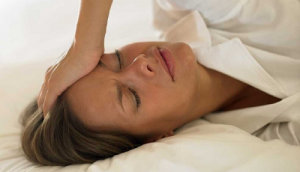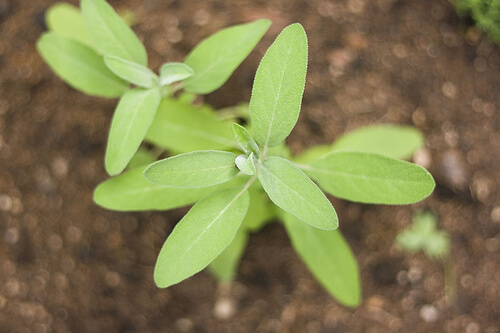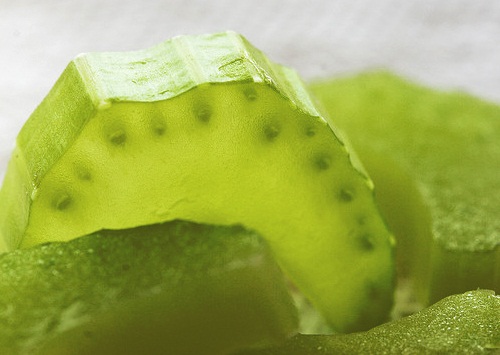Naturally Treat Menopause Symptoms


Reviewed and approved by the doctor Nelton Abdon Ramos Rojas
Every woman will undergo menopause at some point. From hot flashes to night sweats, the symptoms that come with menopause can be uncomfortable and embarrassing, and you probably want to find some ways to treat them naturally.
Also, while menopausal symptoms are fairly consistent, the way they affect a woman’s body are not. Some women may experience intense episodes of night sweats and hot flashes, while others experience only mild versions or none at all.
Whatever the intensity of your menopause symptoms, we want to show you some ways to naturally help treat them, instead of expensive hormonal therapy or prescriptions.
These can help you prevent, treat, and even decrease the frequency of hot flashes that interfere with your daily activities and night sweats that interrupt your sleep.
How to naturally treat menopause symptoms
Soy
Soy is one of nature’s most beneficial plants. It can help you get relief menopause symptoms while also benefiting your body in other ways.
If you’re having night sweats, soy can help make them less intense, and your bones will thank you too! Soy has been proven to reduce bone loss, improve heart health and regulate insulin levels. You can find the highest concentrations of soy in tofu or soy milk which are widely available in grocery stores.
Linden tea
Linden tea, also known as lime tree tea, is a fantastic remedy for reducing the intensity and frequency of night sweats. If you’re suffering from lack of sleep and fatigue because of night sweats and tremors, a glass of this infusion before bedtime can work wonders.
Simply add two teaspoons of lime tree tea leaves to a glass of hot water. Let it steep about five minutes and drink warm right before bed.
Sage

It may seem counterintuitive to use something hot to treat hot flashes, but drinking sage tea really can help reduce the intensity of menopausal hot flashes and night sweats associated. Make it by boiling a liter of water and steeping several leaves for up to 10 minutes. We recommend drinking it after meals.
Witch hazel
For unpredictable hot flashes that cause uncontrollable sweating, we recommend a witch hazel tea. Simply steep a few leaves in hot water. For the best results, you should have two cups a day. Try it and see what a difference it makes!
You might like:
Treat Varicose Veins with Medicinal Infusions
Sage, celery and lemon drink

If Witch hazel isn’t working miracles on your menopause symptoms, adding the properties of celery and lemon is a great way to treat them naturally. It’s a like a trip dose of all the best natural remedies for hot flashes and night sweats.
Read more:
How do you make it?
Without removing the skins, thinly chop a celery stalk and slice a lemon, discarding the ends of both. Place the sage leaves, celery and lemon in a pot with water and bring to a boil for 10 minutes. Let stand for another 10 minutes. Strain into a container and let cool. Drink at least three glasses a day.
Other tricks to treat menopausal sweating
- Wear loose, comfortable clothing, preferably made of natural fibers like cotton and linen. Make sure your bed sheets are made of the same materials.
- Make sure your bedroom and other rooms where you spend a lot time at home are well ventilated and cool.
- Avoid spending too much time in places that are humid or hot. Prolonged periods exposed to either of those can trigger hot flashes and sweating.
- When in the middle of a hot flash, apply a cooling pad or towel filled with ice cubes to the back of your neck. Never apply ice cubes directly to your skin.
- Try to get a weekly massage with lavender essential oil. This can induce relaxation and stave off hot flashes.
- Consume at least two liters of water every day, preferably cool or iced.
- Do 30 minutes of exercise or activity a day. We recommend walking, jogging, or swimming.
- Avoid beverages that contain high levels of caffeine, such as coffee and energy drinks. Adjust your diet to reduce your intake of fats, dairy, and spices.
- Maintaining a steady body weight is always best; obesity and excess weight are often associated with severe menopausal symptoms.
- Taking a bath or shower in cool water before bed will help you stay refreshed and help you sleep.
All cited sources were thoroughly reviewed by our team to ensure their quality, reliability, currency, and validity. The bibliography of this article was considered reliable and of academic or scientific accuracy.
- Nelson, H. D. (2008). Menopause. The Lancet. https://doi.org/10.1016/S0140-6736(08)60346-3
- Lobo, R. A., Davis, S. R., De Villiers, T. J., Gompel, A., Henderson, V. W., Hodis, H. N., … Baber, R. J. (2014). Prevention of diseases after menopause. Climacteric. https://doi.org/10.3109/13697137.2014.933411
- de Villiers, T. J., Hall, J. E., Pinkerton, J. V., Pérez, S. C., Rees, M., Yang, C., & Pierroz, D. D. (2016). Revised global consensus statement on menopausal hormone therapy. Maturitas. https://doi.org/10.1016/j.maturitas.2016.06.001
This text is provided for informational purposes only and does not replace consultation with a professional. If in doubt, consult your specialist.








